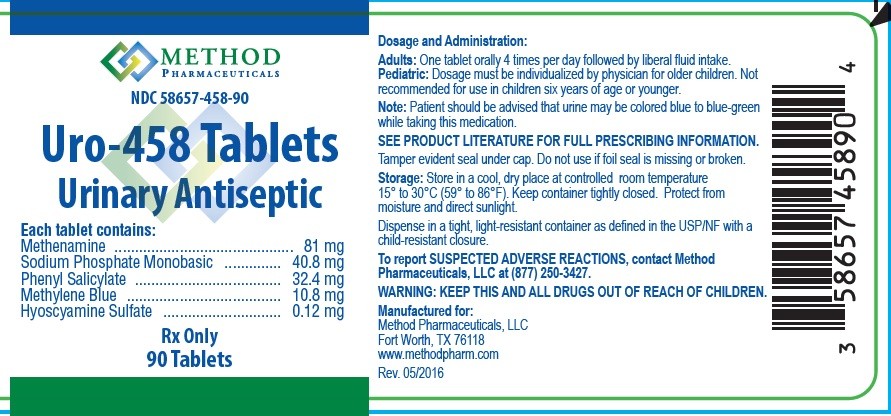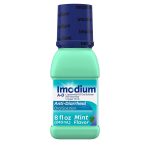
Contents
- 1 methenamine/sodium acid phosphate
- 1.0.1 Warnings
- 1.0.2 What are the side effects of methenamine/sodium acid phosphate?
- 1.0.3 What are the dosages of methenamine/sodium acid phosphate?
- 1.0.4 What drugs interact with methenamine/sodium acid phosphate?
- 1.0.5 Pregnancy and breastfeeding
- 1.0.6 What else should I know about methenamine/sodium acid phosphate?
- 1.0.7 Summary
methenamine/sodium acid phosphate
Methenamine/sodium acid phosphate is a combination drug used to prevent and suppress recurrent urinary tract infections. Excessive and prolonged use of antibiotics can result in the development of antibiotic-resistant strains of bacteria, which is a major problem in the treatment of infections. Methenamine/sodium acid phosphate provides an alternative solution in treating long-standing and chronic urinary tract infections.
Methenamine is an antiseptic and antibacterial agent that breaks down in acidic urine into ammonia and formaldehyde, killing the bacteria by denaturing their proteins and nucleic acid. Sodium acid phosphate acidifies the urine and maintains the acidic environment in the urinary tract that methenamine requires to be effective. Sodium acid phosphate also draws water into the intestinal tract, which causes gastrointestinal side effects.
Warnings
- Do not use methenamine/sodium acid phosphate in patients with hypersensitivity to methenamine, tartrazine, sodium acid phosphate, or any other component of the medication.
- Do not use methenamine containing medications in the following conditions:
- Kidney function impairment
- Severe liver insufficiency
- Concurrent use with sulfonamide or acetazolamide may lead to formation of insoluble precipitates in the urine
- Addison’s disease
- High blood phosphate levels (hyperphosphatemia)
- Urinary tract stones (urolithiasis)
- Severe impairment of kidney function
- Large doses of methenamine may cause urinary frequency, bladder irritation, albumin in urine (albuminuria), and blood in urine (hematuria)
Cautions specific to sodium acid phosphate:
- There have been rare reports of acute kidney injury caused by excessive phosphates (phosphate nephropathy), including permanent kidney dysfunction requiring dialysis, when sodium phosphate products were used for colon cleansing before colonoscopy.
- Dosing regimen should be scrupulously followed with adequate hydration to prevent kidney injury.
- Risk factors for acute phosphate nephropathy include age above 55 years, low blood volume (hypovolemia), colon inflammation (colitis), bowel obstruction, baseline kidney disease, and concurrent use of medications that can affect kidney function or blood flow to the kidneys, such as diuretics, ACE inhibitors, ARBs, or NSAIDs.
- History of kidney stones
- High risk for acute phosphate nephropathy
- Sodium-restricted diet
- History of gastrointestinal pain
What are the side effects of methenamine/sodium acid phosphate?
Common side effects of methenamine/sodium acid phosphate include:
Call your doctor immediately if you experience any of the following symptoms or serious side effects while using this drug:
- Serious heart symptoms include fast or pounding heartbeats, fluttering in your chest, shortness of breath, and sudden dizziness
- Severe headache, confusion, slurred speech, severe weakness, vomiting, loss of coordination, feeling unsteady
- Severe nervous system reaction with very stiff muscles, high fever, sweating, confusion, fast or uneven heartbeats, tremors, and feeling like you might pass out
- Serious eye symptoms include blurred vision, tunnel vision, eye pain or swelling, or seeing halos around lights
This is not a complete list of all side effects or adverse reactions that may occur from the use of this drug. Call your doctor for medical advice about serious side effects or adverse reactions. You may also report side effects or health problems to the FDA at 1-800-FDA-1088.
What are the dosages of methenamine/sodium acid phosphate?
Tablet
Adult:
- Initial: 2 tablets orally once every 6 hours with liberal fluid intake
- Maintenance: 1-2 tablets orally once every 12 hours
- Use only after eradication of UTI by other appropriate antibiotics
- Methenamine: Indicated for prophylaxis/suppression for chronic recurring UTIs when long-term therapy is required
- Sodium acid phosphate: Urinary acidifier
Pediatric:
- Safety and efficacy not established
Overdose
- Methenamine/sodium acid phosphate overdose can result in phosphate toxicity with symptoms that include dehydration, involuntary muscle contractions (tetany), low blood pressure (hypotension), rapid heart rate (tachycardia), high temperature (hyperpyrexia), coma, and cardiac arrest.
- Overdose may be treated with symptomatic and supportive care, including induced vomiting or gastric lavage to eliminate undigested drug, adequate hydration, administration of appropriate medications, and respiratory support if required.
What drugs interact with methenamine/sodium acid phosphate?
Inform your doctor of all medications you are currently taking, who can advise you on any possible drug interactions. Never begin taking, suddenly discontinue, or change the dosage of any medication without your doctor’s recommendation.
- Severe interactions of methenamine/sodium acid phosphate include sodium phosphate rectal, acetazolamide, baloxavir marboxil, choleravaccine, microbiota oral, potassium phosphates IV, and sulfadiazine, deflazacort, dextroamphetamine, lisdexamfetamine, methamphetamine, methylenedioxymethamphetamine, omadacycline, pseudoephedrine, sarecycline, and sodium picosulfate/magnesium oxide/anhydrous citric acid.
- The drug interactions listed above are not all of the possible interactions or adverse effects. For more information on drug interactions, visit the RxList Drug Interaction Checker.
- It is important to always tell your doctor, pharmacist, or health care provider of all prescription and over-the-counter medications you use, as well as the dosage for each, and keep a list of the information. Check with your doctor or health care provider if you have any questions about the medication.
Pregnancy and breastfeeding
- It is not known if methenamine/sodium acid phosphate can cause fetal harm if administered to a pregnant woman. Use only if clearly needed and potential benefits justify potential risks to the fetus.
- Methenamine is present in breastmilk. Use with caution in nursing mothers.
What else should I know about methenamine/sodium acid phosphate?
- Take methenamine/sodium acid phosphate exactly as prescribed.
- Do not exceed the recommended dosage.
- Drink adequate fluids while on treatment.
- Report immediately to your physician if you experience any urinary problems.
- Store methenamine/sodium acid phosphate safely out of reach of children.
- In case of overdose, immediately contact your physician or Poison Control.
By clicking "Submit," I agree to the MedicineNet Terms and Conditions and Privacy Policy. I also agree to receive emails from MedicineNet, and I understand that I may opt out of MedicineNet subscriptions at any time.
Summary
Methenamine/sodium acid phosphate is a combination drug used to prevent and suppress recurrent urinary tract infections. Common side effects of methenamine/sodium acid phosphate include nausea, vomiting, diarrhea, stomach upset, stomach pain, rash, and painful urination (dysuria). Consult your doctor if pregnant or breastfeeding.

